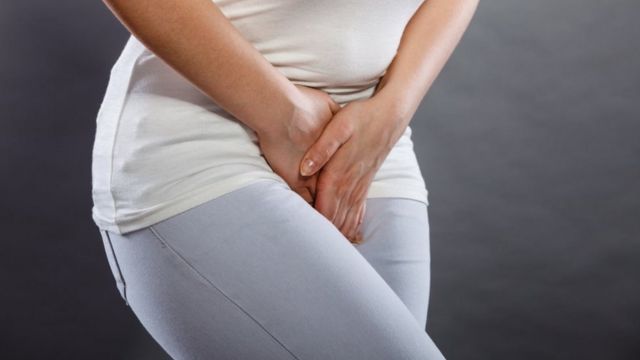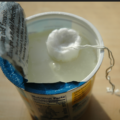The vagina is an elastic, muscular canal with a soft, flexible lining that provides lubrication and sensation. The vagina connects the uterus to the outside world. The vulva and labia form the entrance, and the cervix of the uterus protrudes into the vagina, forming the interior end.
The vagina receives the penis during sexual intercourse and also serves as a conduit for menstrual flow from the uterus. During childbirth, the baby passes through the vagina (birth canal).
On average, the vaginal canal is three to six inches long. If you need a visual aid, that’s roughly the length of your hand. But your vaginal canal can change shape in certain situations, like during sex or childbirth. In addition, several health conditions can also affect your vagina resulting in many uncomfortable symptoms.
Why Is My Vagina Itchy?
According to Healthline, there are several possible causes for itchiness inside the vagina and the surrounding area, this can include;
Irritants: Exposing the vagina to irritating chemicals can cause vaginal itching. These irritants may trigger an allergic reaction that creates an itchy rash over various areas of the body, including the vagina. Common chemical irritants include:
- soap
- bubble baths
- feminine sprays
- douches
- topical contraceptives
- creams
- ointments
- detergents
- fabric softeners
- scented toilet paper
If you have diabetes or urinary incontinence, your urine may also cause vaginal irritation and itching.
Skin diseases: Some skin diseases, such as eczema and psoriasis, can cause redness and itching in the genital region. Eczema, also known as atopic dermatitis, is a rash that primarily occurs in people with asthma or allergies. The rash is reddish and itchy with a scaly texture. It may spread to the vagina in some women with eczema.
Psoriasis is a common skin condition that causes scaly, itchy, red patches to form along the scalp and joints. At times, outbreaks of these symptoms can occur on the vagina as well.
Yeast infection: Yeast is a naturally occurring fungus that’s normally present in the vagina. It usually doesn’t cause problems, but when its growth goes unchecked, an uncomfortable infection can result. This infection is known as a vaginal yeast infection. It’s a very common condition, affecting 3 out of 4 women at some point in their lives, according to the Mayo Clinic.
The infection often occurs after taking a course of antibiotics, as these types of medications can destroy good bacteria along with bad bacteria. Good bacteria are needed to keep yeast growth in check.
The overgrowth of yeast in the vagina can result in uncomfortable symptoms, including itching, burning, and lumpy discharge.
Bacterial vaginosis: Bacterial vaginosis (BV) is another common reason for vaginal itching. Like a vaginal yeast infection, BV is triggered by an imbalance between naturally occurring good and bad bacteria in the vagina.
The condition doesn’t always cause symptoms. When symptoms do appear, they typically include vaginal itching and an abnormal, foul-smelling discharge. The discharge may be thin and dull gray or white. In some cases, it might also be foamy.
Sexually transmitted diseases: Numerous STDs can be transmitted during unprotected sexual intercourse and cause itching in the vagina. These include:
These conditions can also cause additional symptoms, including abnormal growths, green or yellow vaginal discharge, and pain while urinating.
Menopause: Women who are going through menopause or who have already done so are more at risk for vaginal itching. This is due to the reduction of estrogen levels that occur during menopause, which leads to vaginal atrophy. This is the thinning of the mucosa that can lead to excessive dryness. The dryness can cause itching and irritation if you don’t get treatment for it.
Stress: Physical and emotional stress can cause vaginal itching and irritation, though this isn’t very common. It might occur when stress weakens your immune system, leaving you more prone to the infections that cause itching.
Vulvar cancer: In rare cases, vaginal itching may be a symptom of vulvar cancer. This is a type of cancer that develops in the vulva, which is the external part of the female’s genitals. It includes the inner and outer lips of the vagina, the clitoris, and the opening of the vagina. Vulvar cancer may not always cause symptoms. However, when symptoms do occur, they may include itching, abnormal bleeding, or pain in the vulvar area.
Vulvar cancer can be treated successfully if your doctor diagnoses it in the early stages. This is another reason that yearly gynecologist checkups are essential.
How to stop vagina itching
It’s important to see a doctor when your vagina itches consistently, but here are some home remedies for vagina itching you can try first.
Soda Baths: Baking soda baths can potentially treat yeast infections as well as certain itchy skin conditions. According to a 2013 study, baking soda has antifungal effects. A 2014 study found that baking soda killed Candida cells, the same cells that cause yeast infections.
The National Eczema Foundation recommends adding 1/4 cup of baking soda to your bath, or making it into a paste and applying it to your skin to treat eczema. A study from 2005 found baking soda baths to be an effective treatment for psoriasis, too.
Greek yogurt: This is a common home remedy for yeast infections. A probiotic, yogurt promotes the growth of “good” bacteria in the vagina. This bacteria can kill off some of the yeast and keep your vagina healthy. A 2012 study looked at 129 pregnant women with yeast infections. Researchers gave a yogurt and honey treatment to 82 of them and gave 47 subjects over-the-counter antifungal cream. The study found that a mixture of honey and yogurt was more effective at treating vaginal yeast infections than over-the-counter antifungal medication.
A 2015 study involving 70 non-pregnant women reached the same conclusion: yogurt and honey were more effective than commercial antifungal cream.
Cotton underwear: This is helpful if you have any sort of vaginal or vulvar discomfort. Cotton underwear is breathable, which means that it can help reduce itchy skin conditions. Wearing 100 percent cotton underwear might prevent yeast infections, as yeast thrives in areas that aren’t well ventilated.
Apple cider vinegar: Many people believe that adding apple cider vinegar to your bath can soothe a yeast infection. It’s also a common home remedy for itchy skin. Unfortunately, there’s little evidence to support this claim. Nevertheless, it’s a cheap remedy to try, and one that has no known side effects.
Probiotics: Bacteria is essential for vaginal health, and probiotics can increase the “good” bacteria in your vagina. You can find probiotic supplements, such as capsules and tonics, at your local drugstore or health store, or shop online. These promote the growth of healthy and helpful bacteria in your vagina and gut. These can be taken as a preventative measure, too. Your doctor might recommend taking probiotics when they prescribe antibiotics.
Eating food that contains probiotics can also promote the growth of “healthy” bacteria in your vagina and gut. This is important for your vagina and your gut health.
Probiotic foods include:
- yogurt
- kombucha
- kimchi
- sauerkraut
- miso
If you have a yeast infection, eating the above foods can help your body fight it.
Coconut oil: A 2016 study demonstrated that coconut oil can kill Candida albicans, which causes yeast infections. However, this study was done in a lab, and there isn’t enough evidence to confirm whether it works in humans.
Antifungal Creams: If a yeast infection is causing your discomfort, there are many over-the-counter antifungal creams that can bring you relief. They kill off the yeast, which soothes the itch. They can also come in the form of vaginal suppositories, which are inserted into the vagina. If you use an antifungal cream or suppository on your vagina, it’s best to wear a pantyliner to stop it from seeping into your pants.
Cortisone cream: If you have an itchy crotch after shaving pubic hair, cortisone cream might be your best bet. This can also be used to treat eczema, allergic skin conditions, and some rashes. It reduces the itch and soothes it. Cortisone cream should never be applied inside your vagina but can be applied to the skin outside of it where pubic hair grows.
Tips for vaginal health
While several conditions can affect the vagina, practicing good vaginal hygiene can prevent and soothe an itchy vagina.
Follow these tips to lower your risk:
- Avoid douching. The vagina naturally cleanses itself. Douching can upset the natural balance of bacteria and fungi, leading to an infection.
- Avoid scented soaps and feminine hygiene products. Perfumes in scented hygiene products, such as soaps, pads, and wipes, can irritate the skin and disrupt the pH balance of the vagina. Opt for unscented products instead.
- Be sexually responsible. Always use protection with new partners and make sure to follow up with regular STI testing.
- Do Kegel exercises. These help to strengthen the pelvic floor muscles, which can help reduce your risk for vaginal prolapse and pelvic floor weakness.
- Get vaccinated. Speak to your doctor about vaccinations to protect against HPV and hepatitis B, which can be transmitted through sex.
- Get regular checkups. See your doctor for regular Pap smears and screenings for cervical cancer and HPV. The U.S. Preventive Services Task Force recommends that women ages 21 to 65 have cervical cancer screening with a Pap smear every three years. Women ages 30 to 65 can lengthen the screening interval to five years if they have HPV testing in combination with a Pap smear.





